Ozone Magazine has been one of the top magazines in the
southern hip hop game ever since it debuted just a few years ago. It has
dominated the market and has grown quickly to become “Your favorite rapper’s
favorite magazine”. Julia Beverly, the founder and owner of Ozone Magazine
recently sat down with 24Hour to give us a little insight on how she built her
business and even offers some advice for up and comers. Once again pay
attention kiddies as some serious knowledge is getting shared here.
24: Okay Julia I want to thank you for taking this time
to speak with us, I know you’re very busy. For those that don’t know please go
ahead and tell the people who you are and what you do.

JB: Okay well obviously I’m Julia Beverly and I’m the CEO /
publisher of Ozone Magazine. I also do free lance photography and journalism
for other media outlets as well as Ozone. I actually just started my booking
agency, so I’ve been doing a lot of bookings to get artists shows and things
like that. Of course along with Ozone we’ve got the Ozone awards weekend that
we do with TJ’s DJ’s and were organizing our third annual one now so we’ll have
that coming soon as well.
24: Okay now Ozone Magazine
is real heavy in the streets and it’s known to be a favorite among the
industry’s artists themselves. How did you get the mag started?
JB: Well like I said I started out as a photographer and it
wasn’t really like I just sat around and thought about starting a magazine. I
just saw the other mags like the Vibe’s and XXL’s and I just didn’t know how to
be a part of that industry but I knew that I had the talent to do the
photography and writing and interviews. My initial idea was to build up my
portfolio and then take it to another magazine and get a job with them because
I didn’t really know what I wanted to do career wise. But we kinda came up at
the same time as the whole southern explosion and I noticed that the other
magazines weren’t really aware of what was happening and covering it properly.
So we just were kinda in the right place at the right time.
24: How long has Ozone been around?
JB: Well we just wrapped our 6th anniversary
issue, so it’s going on six years now
24: When you say you went in and learned the game how did
you do that?
JB: Really just trial and error. I mean you can take classes
on photography and journalism but there’s only so much you can learn just by
sitting in a classroom. I mean you learn the way things are supposed to be but
once you get in the industry and meet actual clients and actual artists you learn
that it’s not always that straight forward. I think to be successful in any
field you have to have a variety of skills and be able to deal with different
types of people. I mean now I know how to go to an event and get all the shots
I need and get the backstage access and get what I need out of a situation just
cause I been doing it so long. It’s just like anything else you’ve gotta have
hands on experience in addition to the knowledge and the talent to do what you
do.
24: So the mag was spreading from city to city and it was
growing. So how did you take it to that next level of being in book stores and
all that?
JB: Well we started in Orlando so it was just a local
magazine. From there we started sending boxes to Tampa and Miami. What started
happening was I would get calls from people who were in town visiting those
cities and they would see it and they would say hey were from Savannah and
we’ve got this artist ya know how can we get him in the magazine. So we might
say okay we’ll do a feature on your artist and were gonna send you ten boxes
and you take them to all the radio stations and put it in your local music
stores. For the first couple of years we were totally independent. Then we got
some sponsorship from Crunk Energy Drink and they gave us some trucks and every
month we would just load up the trucks. One would be an Orlando truck and one
would be a Houston truck and we had different people in each market so we would
just drive from Orlando to Atlanta to Houston to every city in between and we
would meet our reps in those cities and give them a couple boxes. They would
fill us in whoever’s hot in that city or maybe we would stop and go to the club
that night and take pics of the local DJ’s and stuff like that. We really
grinded it out for a couple of years but it got to a certain point where we
couldn’t handle all of it ourself. So we went through a major distributor who
handles The Source and XXL and they helped us get into the bookstores and all
that. But we still have over 200 reps who we drop boxes on them every month and
their responsible for getting it to the key people in their city.
24: How did you go about building relationships early on
when you were just starting?
JB: Really just being on the scene all the time. It’s really
not that hard to build relationships with people, it just takes time and it
takes a lot of effort on your part. Ya know to go out and be at the places
where everybody’s at, be it the conferences or music videos or record pool
meetings or shows. When I started out I was in Orlando so whatever artist was
coming to town I would link up with the promoter and get some passes to the
show. One of the things I learned is a lot of people go about things the wrong
way. Like I would never just go up to someone and say “Hey I have a magazine,
do you wanna spend some money and run some ads?”, ya know that’s not a good way
to introduce yourself to somebody. Like I would always try to give them
something first, instead of me just coming up and asking them for something.
Also your attitude is important you can’t treat people a certain way and then
act different when they blow up. Like Lil Jon for example, he had a show in
Orlando and like ten people showed up so it was cancelled. But we had arranged
to do an interview so I went ahead and interviewed him and he blew up huge
after that. So they respected that. I could have easily just been like aww ya
know he ain’t shit, nobody showed up for his show and just leave but I followed
through. So just bein’ able to relate to people and show them respect. Even
today I try to keep in mind that you never know who somebody might become one
day so when people tell me their the next big thing I try to take them
seriously.
 24: Now I know a lot of cats come up to you for advice,
24: Now I know a lot of cats come up to you for advice,
what do you tell them?
JB: Like I said just the relationships and just be cool with
people. People like me in my position we have people coming at us all day long
asking can you do this for us? Can you do an article on us? Sometimes it’s
better to just have a certain relationship with people where you’re just cool
with them. Like I have artist friends that ya know we’ll just go to Waffle
House after the club and we don’t talk about anything music related. I think
it’s always better to have people come to you, if you can make your name stand
out. If I’ve been hearing people talking about you, that’s the biggest thing to
me. Like if you just come up to me and say “Hey I’m the next big thing!”,
that’s not really as effective as different DJ’s telling me that. If TJ Chapman
tells me, hey this kids the next big thing then I believe him. If Greg Street
tells me or OG Ron C in Houston. Ya know just different people that in
different markets have the city on lock then of course I’m gonna pay a little
more attention. So it’s important to have relationships with key people in the
industry that can cosign for you. That gives it a little more weight.
24: Now you mentioned above how you were grinding early
on, tell the people what a true grind is.
JB: If you’re really grinding you don’t have to talk about
it, people should be able to see it. So when people come up to me and tell me
their grinding I don’t really pay that much attention. If I see you everywhere
I go or if I’m getting 20,000 pictures of you from my street reps every month because
you’re in pics from ten different cities over a months time then I know you’re
grinding it out. Like when Webbie’s or Rick Ross’ album drops their in every
picture that gets sent to me so I know their grinding it out. Grinding it out
is when your on a mission and your not gonna let anything stop you from doing
that. Like real talk I used to sleep in rest stops. When I didn’t have any
money for a hotel and I wanted to go to an event or whatever I would sleep in a
rest stop, then I would go find a local gym or whatever, pay the little $7
admission fee, take a shower and get back on the road. That’s a grind. I used
to stay up for like two, three days straight. I can’t even do that anymore
because my body is kinda burnt out on it but when you’re grinding it out it
will definitely be reflected in your work and people will see it and credit you
for it without you having to tell them you’re grinding. So I think people
should just let their work speak for itself.
24: I know you travel a lot with the mag, what are some
of your favorite cities?
JB: Hmmm, favorite city? I mean I have fun every time I come
to Miami. I had a lot of fun in Vegas, we did a bunch of parties for new years.
I just moved to Atlanta and I’ve always liked Atlanta from when we traveled
here. But really as far as party cities you gotta give it to Miami or Vegas.
Chicago is nice when it’s not so cold.
24: Now I know you see a lot of artists coming up.
However we’ve seen certain artist come up faster than others. Why do you think
certain artists have to grind out for ten years and for some it seems to happen
sooner? What do you think one is doing better than the other or what’s the main
difference between the two?
JB: It’s kind of like the whole package. Like the music of
course is important but you’ve gotta have the right team behind you, you’ve
gotta have the right business mind. You’ve gotta have the look, you have to be
marketable. Its not always the most talented person is the one that wins, its
more of a combination of things. It’s the hustle and the look and the music.
Everything kind of has to fit together. Also crowd reaction is a big thing.
Like I knew Plies had a little buzz going on but I didn’t really realize the
extent of it till I went to a show. This was way before he signed with Atlantic,
I just saw the reaction and people knew the music and were singing along with
him, grabbing him. When you see a crowd react to an artist that’s on a small
scale that’s usually gonna work on a large scale. I think the overall vibe of
an artist too. Like there’s certain people when they walk in a room people
notice them. So that’s important to have just that charisma, where they know
they’re a star before they even reach that level.
24: Okay what city do you see coming up next, what city
is bubbling right now?
JB: I mean it’s been kinda slow lately, so it’s kinda hard
to see where the next movement is coming from. As far as the south, Miami has
had hit artists for the last couple years so I think the Miami movement is
alive and well. Of course Atlanta, we’ve seen a lot of artists come out of
there. Also on the west coast we just started Ozone West. I see a lot of issues
in the west like as far as the unity isn’t quite the same. Like in the south we
kind of have that us against the world mentality where were gonna ride for
somebody from the south over another region. But I think the west coast has a
lot of talent, they just need to find ways to be supportive of each other and
put away some of the petty stuff to move their whole region forward. And I see
a lot of opportunity for the Midwest to come up also.
24: What were some of your early musical influences?
JB: When I first started listening to rap it was just
Outkast and 2Pac. I really didn’t get exposed to a lot of southern rap until I
started to get into the magazine game. It was funny cause I was getting to know
the artists at the same time I was getting to know their music. I kind of got
up close and personal.
24: What’s the wildest situation you’ve been in on the
road? Or a good tour bus story?
JB: I mean there is so many of em’. But when I first started
out I was on BG’s tour bus and this is when he was real heavy on dope. This was
like on of my first interviews and they picked me up on the tour bus. They were
supposed to bring me back but they didn’t I ended up just riding around with
them all day. But it was so wild cause he was just so doped up. We went out to
eat and he couldn’t really function cause he was just so, ya know…fucked up.
And that was just crazy to see, me being new in the game, to see such a huge
artist like that. It was kinda sad. Ya know he’s real cool now and I’m
glad he could shake that, ya see he’s gaining weight now.
24: Do you see drugs fucking up a lot of rappers today?
JB: I think there’s a lot of drug use of course, but there’s
a lot of rappers that don’t do drugs, but still emphasize it. Like 50 Cent he
doesn’t smoke or drink but he still talks about it in his records. So I just
wish more artists would be a little more honest about what they do and don’t do.
I know a lot or rappers who are smarter and more sober than you would think.
But it’s just like anything else ya know like a rockstar or whatever; rappers
can have however much of whatever they want. So if you have a weakness for weed
or for coke or for whatever and your on the road constantly and getting money
constantly and people are just throwing it in your face you might overindulge.
I just would like to see people have a little more restraint.
24: What do you feel is lacking in hip hop journalism?
JB: Well I don’t really consider myself a journalist. I more
just allow the artist to tell their story and I try not to alter it. One of the
things I see in journalism is the writer will try to put their own words into
the artists mouth or make predictions about the artist rather than just let the
artists be themselves. So me I just try to let them say what’s on their mind
and try to be as truthful to what point their trying to get across instead of
trying to put in my perspective. Also going along with that I see magazines
that do interviews with artists and the artist’s responses, it just doesn’t
sound like something they would say. They change things to make it sound
prettier or more grammatically correct. My whole thing is just try to stay true
to what they said and not alter it. Like I read an article from Lil Scrappy and
it sounds like it’s spoken in perfect English, it just sounds and feels fake.
So I just let the artist be them.
24: A lot of people say it takes money to make money in
this? Is this completely true or can someone make it off talent and grind
alone?
JB: Well it definitely takes money to make money. But I’ve
seen people make it off of talent and grind alone. The fact is it might not be
in your best interest to get a big chunk of money. If your building your buzz
and getting a thousand here for a show or five hundred here for a verse, your
gonna use that money a lot more wisely. But when I started out I definitely
didn’t have any money, so it can be done. Of course it’s harder that way but
sometimes that’s a good thing because it allows you to put that time in and
like I said perfect your craft. Sometimes when you don’t have money it forces
you to be creative and find ways to get your music out there. Just having money
by itself is not enough and just having the hustle by itself is not enough. Ya
know you’ve gotta use that hustle to bring some cash in to push yourself as an
artist. But just because you don’t have money, that’s not an excuse to not get
out there and meet people. A lot of it is who you know and if you meet the
right people they can help you bring in some money to your situation. So it can
definitely be done
24: Okay Julia that’s about it, we greatly thank you for
all your words and time. Is there anything else you wanna point out to the
people?
JB: Well just the Ozone Awards is coming August in Houston,
that’s gonna be real major. The last two years have been crazy if you missed it
they air it on MTVJAMS. Like I said I just kicked off my booking agency, it’s
called Agency 12. So if anybody needs artists for a show or birthday or
whatever they can hit us up on Agency12.com. But that’s about it.
24: Okay once again thank you and keep putting out that
magazine we all know and love.
JB: No problem, thank you.




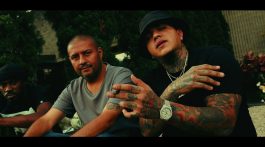

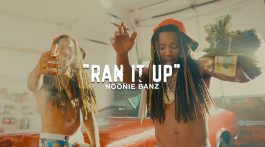
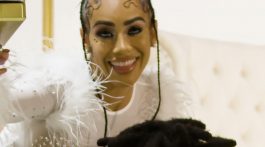

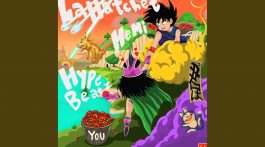
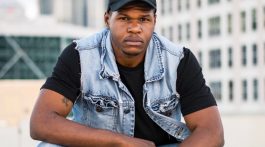

No Comment